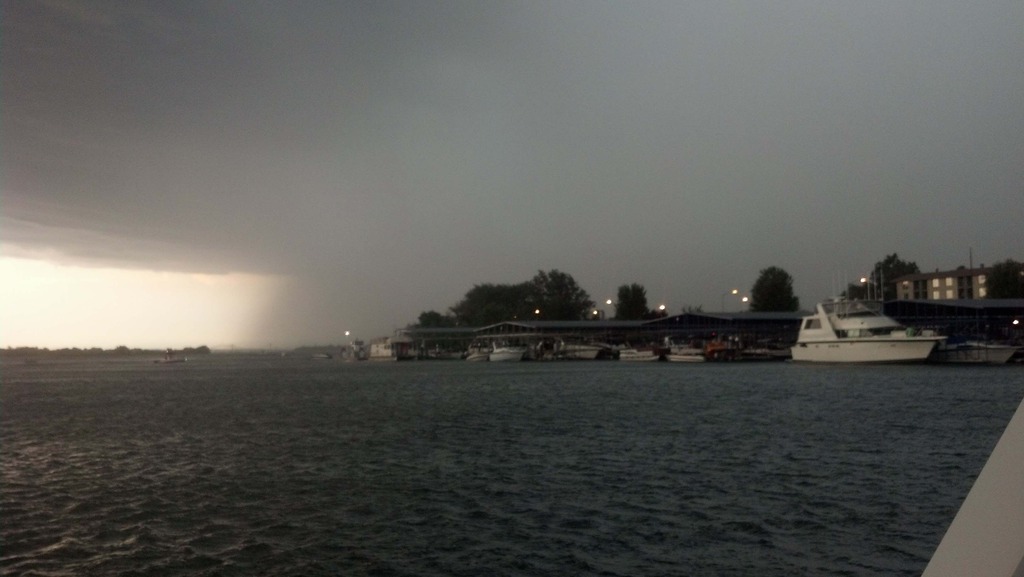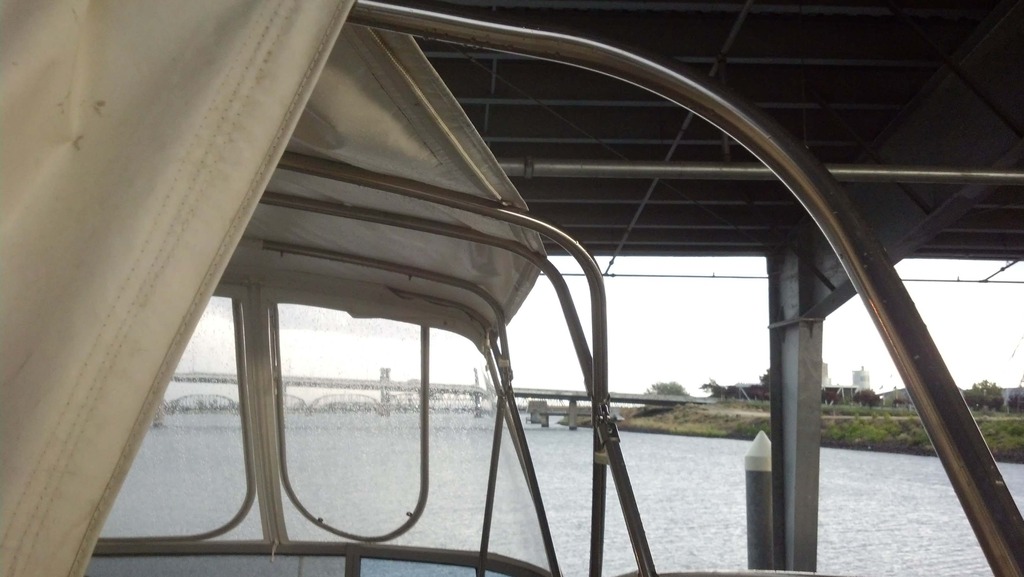I have never been in seas heavy enough to make me concerned, but I have readied my sea anchor a few times as my plan for really rough conditions is to toss it out and then ride out the storm.
My big fear is lightning. When I had my boat built, I looked into lightning protection, and really couldn't find anything suitable -- just lots of strong opinions. So, my plan for lightning is to avoid it. Once, while in the Sea of Cortez traveling from La Paz to Pureto Vallarta, lightning started in front of us and behind us. The strikes in front of us were all at least 5 miles away, but were moving south faster than we were. The strikes behind us were a little closer, but didn't seem to be moving south. (It takes a bunch of strikes to infer a pattern, so I wasn't real confident of my conclusions.) Sirius weather had a feature to show lightning strikes in very nearly real time -- it wasn't showing all of the strikes we were seeing, but helped to confirm our conclusions. So, we just kept going, and everything worked out. After arriving in PV, we realized that lightning storms are almost a daily event, but the vast majority of strikes were over land. Most of the other American fishing boats were undeterred and fatalistic about getting hit. After that summer, I moved the boat north and don't plan to return any time soon (for a bunch of reasons, but the fear of lightning is chief among them).









